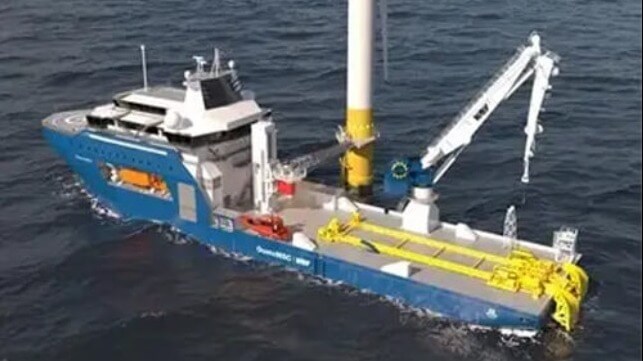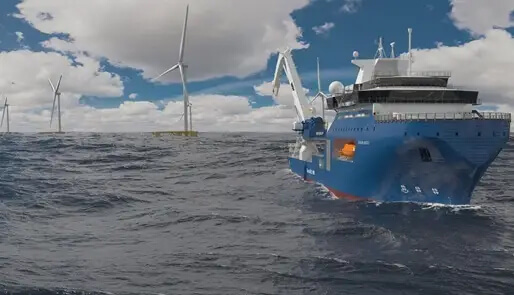NOV Designs Larger, Modular SOV Concept for Next Generation Wind Farms

As wind farms move farther offshore and into deeper waters, more robust operations and maintenance strategies will be required. The support vessels designed to service these wind farms will need to be able to operate safely, effectively, and longer in increasingly challenging environments.
Texas-based global energy company NOV is presenting its concept for a Modular Service and Operations Vessel (MSOV) that according to the company is a new concept designed to optimize offshore wind farm operations and maintenance. The concept for the MSOV design was developed based on GustoMSC’s Enhydra MSOV design added additional features to make the vessel suited to the emerging challenges in the offshore wind industry.
At 459 feet in length, their design for the MSOV is larger than conventional SOVs, which are typically between approximately 260 and 295 feet in length. The added dimension allows for additional capabilities, integrating additional modular equipment and increased comfort for those on board.
“The increased workability and versatility of the MSOV will provide a cost-effective year-round working platform covering the life cycle of the wind farm,” said NOV. “With the Enhydra MSOV series, it is delivering the next evolution of offshore wind support vessels because it allows wind operators to use the modular capabilities to manage even unplanned operations.”

They are highlighting that the vessel would offer an extensive and flexible deck layout to integrate mission equipment from lifting and handling as well as integrating cable-lay equipment. There would be 14,000 square feet of deck space. Other features would include a crane fitted with a unique motion control on its main hoist, giving superior load control at an extended stand-off position.
The versatile workhorse would be capable of handling cable repair and change-out, subsea inspection and intervention, and mooring installation for floating wind farms. It is also designed to support the operation of daughter craft and unmanned subsea, surface, and aerial assets.

that matters most
Get the latest maritime news delivered to your inbox daily.
The company said the vessel would be 12,500 dwt with a speed of 13 knots. It is designed for autonomous operations of up to 60 days and would have integrated personnel transfer capabilities such as boat landings and a helideck. Accommodations would include 150 cabins with a capacity of between 150 and 180 people on board.
Responding to the growing concerns over sustainability they are proposing to power the vessel with methanol. The vessel would also be outfitted with a kinetic energy recovery system to further reduce CO2 emissions.
